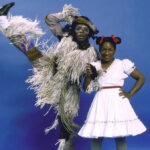Bruce Springsteen’s “Dancing in the Dark” is more than just an 80s anthem; it’s a poignant exploration of feeling stuck and yearning for change. The lyrics resonate with anyone who has experienced the monotony of daily life and the burning desire to break free. This song delves into the depths of stagnation, capturing the universal feeling of wanting something more, even when the path forward is unclear.
The Weariness of Repetition: Verse 1
The opening verse immediately sets a scene of weary repetition. “I get up in the evening / And I ain’t got nothing to say / I come home in the morning / I go to bed feeling the same way.” These lines paint a picture of a life devoid of inspiration, where days and nights blur into one another. The speaker is trapped in a cycle of sameness, emphasizing the feeling of being “tired and bored,” even with oneself. This internal dissatisfaction sets the stage for the central theme: the desperate need for a spark.
Igniting the Flame: The Chorus and the Metaphor of Fire
The chorus introduces the powerful metaphor of fire: “You can’t start a fire / You can’t start a fire without a spark.” This line becomes the song’s core message. Fire represents passion, change, and excitement – everything the speaker currently lacks. The “spark” symbolizes the catalyst needed to ignite this change. The line “This gun’s for hire / Even if we’re just dancing in the dark” adds a layer of complexity. “Gun for hire” suggests a readiness for action, a willingness to do what it takes to change the situation. “Dancing in the dark” becomes a symbol of seeking solace, connection, or even just a momentary escape from the darkness of stagnation, while still holding onto that readiness for change.
Seeking External Change: Verse 2 and the Mirror
Verse two reflects a growing restlessness and a desire for external change. “Message keeps getting clearer / Radio’s on and I’m moving ’round the place / I check my look in the mirror / I wanna change my clothes, my hair, my face.” The “message getting clearer” could be interpreted as an increasing awareness of their dissatisfaction. The actions of moving around and checking the mirror signify a yearning to alter their outward appearance, a symbolic representation of wanting to change their inner state. However, the lines “Man, I ain’t getting nowhere / I’m just living in a dump like this” reveal the frustration that surface-level changes are not enough to overcome the deeper feeling of being stuck.
The Joke’s on Me: Verse 3 and Acceptance
The third verse takes a slightly different turn, acknowledging the passage of time and a hint of self-deprecating humor. “You sit around getting older / There’s a joke here somewhere and it’s on me / I’ll shake this world off my shoulders / Come on, baby, the laugh’s on me.” There’s an acceptance of aging and perhaps the realization that they are partly responsible for their situation. The desire to “shake this world off my shoulders” is a call to lighten the burden and find some release. Inviting “baby” to share “the laugh” suggests seeking connection and shared understanding in the face of life’s absurdities.
Starving for Action: Verse 4 and Desperation
Verse four escalates the feeling of desperation. “Stay on the streets of this town / And they’ll be carving you up all right / They say you gotta stay hungry / Hey, baby, I’m just about starving tonight.” The imagery becomes more intense, suggesting a harsh external world and the pressure to “stay hungry” – to constantly strive for more. “Starving tonight” amplifies the need for change from a desire to a necessity. The lines “I’m dying for some action / I’m sick of sitting ’round here trying to write this book / I need a love reaction / Come on now, baby, gimme just one look” reveal a desperate craving for action, connection (“love reaction”), and validation. The writer’s block (“trying to write this book”) could symbolize creative or personal stagnation, further emphasizing the need for a spark to reignite passion.
The Power of Dancing in the Dark: Repetition and Resolution
The repeated chorus, especially in the outro, reinforces the central metaphor. “You can’t start a fire / Sitting ’round crying over a broken heart… Worrying about your little world falling apart… Even if we’re just dancing in the dark.” These variations on the chorus highlight different aspects of stagnation – heartbreak, worry – but the solution remains the same: even “dancing in the dark” is a form of action, a way to keep moving, to keep seeking that spark, even when surrounded by darkness. The repetition of “Even if we’re just dancing in the dark” at the end becomes an affirmation, a quiet resilience in the face of feeling lost.
“Dancing in the Dark” lyrics capture the essence of feeling stuck but refusing to give up hope. It’s about finding small moments of connection and action (“dancing in the dark”) while yearning for the spark that will ignite real change and passion. The song’s enduring appeal lies in its honest portrayal of a universal struggle and its message of persistent hope, even in the face of stagnation.


